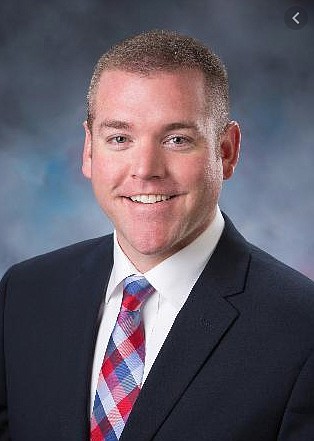House passes $3.7B Medicaid package, shoots down COVID testing
The health of Idahoans stood front and center in the Idaho Legislature Tuesday, with the House narrowly passing a $3.7 billion Medicaid budget.
The bill includes $1.2 billion in the state’s enhanced Medicaid budget and $828 million for the state’s basic Medicaid fund.
Medicaid, the state’s medical program for lower-income Idahoans, has drawn the ire of fiscal conservatives looking to rein in federal spending, a stark contrast to the Medicaid expansion passed by Idaho voters in 2018, the last citizen initiative to successfully make its way onto the ballot.
That expansion, despite being a done deal long before the bill came before the House Monday, still drew the attention of legislators whose eyes popped at the price tag.
“The costs here are over-the-top outrageous,” Rep. Ron Nate, R-Rexburg, argued Tuesday on the House floor. “This is over a $600 million increase in spending from last year, which is almost the amount of money we spend on the entire higher education system.”
Rep. Paul Amador, R-Coeur d’Alene, said he understood the House’s unease with the bill.
“I think all of us are probably frustrated with out-of-control spending related to Medicaid,” said Amador, the bill’s sponsor. “That primarily is based upon enrollment growth and policies that have been adopted by the state and by the federal government related to Medicaid.”
Since the expansion took effect in 2020, individual Idahoans making up to $17,000 per year and families of four making up to $35,000 qualify for the state medical program, and those making up to 400 percent of the poverty line can receive a discount on their insurance premiums.
The appropriation — Senate Bill 1185, officially — passed on a 36-34 vote, and it will now return to the Senate.
"My colleagues realized it had to pass," Amador told The Press after the vote. "These are bills we have to pay."
But the House wasn’t done debating health issues on Tuesday, later voting down a federal appropriation that would have provided $40 million toward COVID-19 testing in public and private schools.
Senate Bill 1210, which would have directed the money from the federal Cooperative Welfare Fund through the state’s Department of Health and Welfare to pay K-12 and higher education facilities for COVID-19 testing, didn’t muster enough support to pass Tuesday. The bill failed on a 28-41 vote, with opponents engaging in anti-pandemic rhetoric, including one representative who falsely claimed children could not carry the virus.
“It’s been proven time and time again scientifically that children are not carriers,” Rep. Tammy Nichols, R-Middleton, said before voting against SB 1210.
As of Monday, Health and Welfare reports that nearly 21,000 Idaho children age 17 and younger have contracted COVID-19. The Centers for Disease Control and World Health Organization both confirm that children can, indeed, carry and become infected by the virus.
The federal funding behind SB 1210 was allocated through the federal American Rescue Plan Act, the latest $1.9 trillion wave of pandemic aid pushed by President Joe Biden and approved by Congress.
Under the distribution provisions referenced in SB 1210, all testing would have been voluntary — for students, parents and school districts alike, the latter of which able to opt in or opt out of the program.
Scott Maben, director of communications for the Coeur d'Alene School District, said area schools consider tests as real assets to keep students safe.
"We have used hundreds of PCR test kits in our schools this year," Maben said. "... We hope to have access to PCR testing in the future as well. These test kits help our students to return to school early; they can take the test after five days from the date of exposure, and return on the eighth day if they are negative and still symptom-free. These tests also stop outbreaks by detecting asymptomatic positives after known exposures."
SB 1210 had passed the Senate on a 26-3 vote Thursday before moving to the House.
Rep. Heather Scott, R-Blanchard, said SB 1210 represents overreach.
“I have a problem with this in our schools,” Scott said. “This is just more government. It’s more data collection on our kids."

